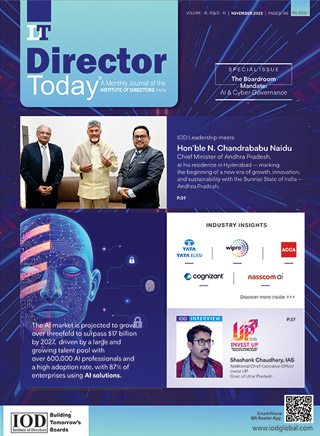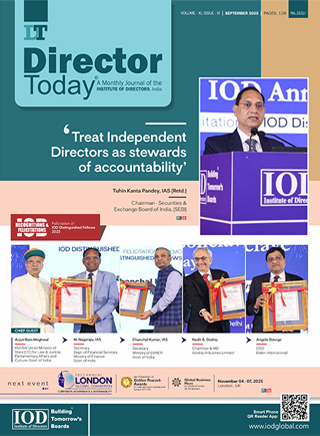Latest from the Regulator - August 2024

MCA allows Real-Time Updates for Director Contact details
Ministry of Corporate Affairs (MCA) has introduced amendments to the Companies (Appointment and Qualification of Directors) Rules, 2014, which have come into effect on August 1, 2024. These changes aim to enhance transparency and simplify the procedures for appointing directors. Notably, the amendment to rule 12A now mandates that updates made to personal information of directors must be done in specified form by September 30th of each financial year. Additionally, a new provision has been introduced allowing directors to update their mobile numbers and email addresses in real time, replacing the previous annual update process. Previously, directors had to file their KYC annually, with contact information updates only possible in the following April, often leading to outdated details during organisational changes or restructuring. This new approach ensures continuous and accurate communication, facilitating seamless transitions and reducing disruptions.
NSE, BSE expand ESM Framework to cover companies with m-cap up to Rs 1,000 crore
Beginning August 13, stock exchanges will extend the Enhanced Surveillance Measure (ESM) framework to include mainboard companies with a market capitalization of up to Rs 1,000 crore. Previously, the ESM framework was limited to companies with a market cap below Rs 500 crore.
Enhanced Surveillance Measures includes Graded Surveillance Measure (GSM), Additional Surveillance Measure (ASM), price band reductions, periodic call auctions, and transferring securities to the Trade-to-Trade category.
SEBI Proposes Relaxed Disclosure Norms for Certain Foreign Portfolio Investors
The Securities and Exchange Board of India (SEBI) has put forward a proposal to ease disclosure requirements for large Foreign Portfolio Investors (FPIs) from Land-Bordering Countries (LBCs). The new framework suggests linking disclosure obligations to specific thresholds for identifying an FPI as an LBC or non-LBC entity. Categorization of FPI as LBC or non-LBC may be made on the basis of country/nationality of entities owning/controlling/ holding economic interest in a suitable majority of AUM of the FPI, on a look through basis as per the consultation paper.
• If LBC entities hold more than 50% of the FPI's assets under management, they would be exempt from detailed disclosure requirements.
• Additionally, if non-LBC entities own over 67% of the FPI's assets, the FPI would not be required to make granular disclosures.
SEBI eases Director Nomination Rules for REITs and InvITs to promote Ease of Doing Business
In a move to enhance ease of doing business, the Securities and Exchange Board of India (SEBI) has amended the rules governing the nomination rights of unitholders in Real Estate Investment Trusts (REITs) and Infrastructure Investment Trusts (InvITs) for appointing directors. Under the existing framework, unitholder(s) holding not less than ten percent of the total outstanding units can nominate one director to the Board of the REIT's or InvIT's Manager. However, entities with the right to nominate directors as shareholders or lenders cannot use their unitholder status for additional nominations.
SEBI has now introduced an exception to this rule: if the right to appoint a nominee director arises from conditions specified in the SEBI (Debenture Trustees) Regulations, 1993-such as payment defaults or security creation, the restriction on unitholders does not apply, as outlined in two new circulars from the regulator.
Author

Institute of Directors India
Bringing a Silent Revolution through the Boardroom
Institute of Directors (IOD) is an apex national association of Corporate Directors under the India's 'Societies Registration Act XXI of 1860'. Currently it is associated with over 31,000 senior executives from Govt, PSU and Private organizations of India and abroad.
Owned by: Institute of Directors, India
Disclaimer: The opinions expressed in the articles/ stories are the personal opinions of the author. IOD/ Editor is not responsible for the accuracy, completeness, suitability, or validity of any information in those articles. The information, facts or opinions expressed in the articles/ speeches do not reflect the views of IOD/ Editor and IOD/ Editor does not assume any responsibility or liability for the same.

 Quick Links
Quick Links
 Connect us
Connect us




 Back to Home
Back to Home






























